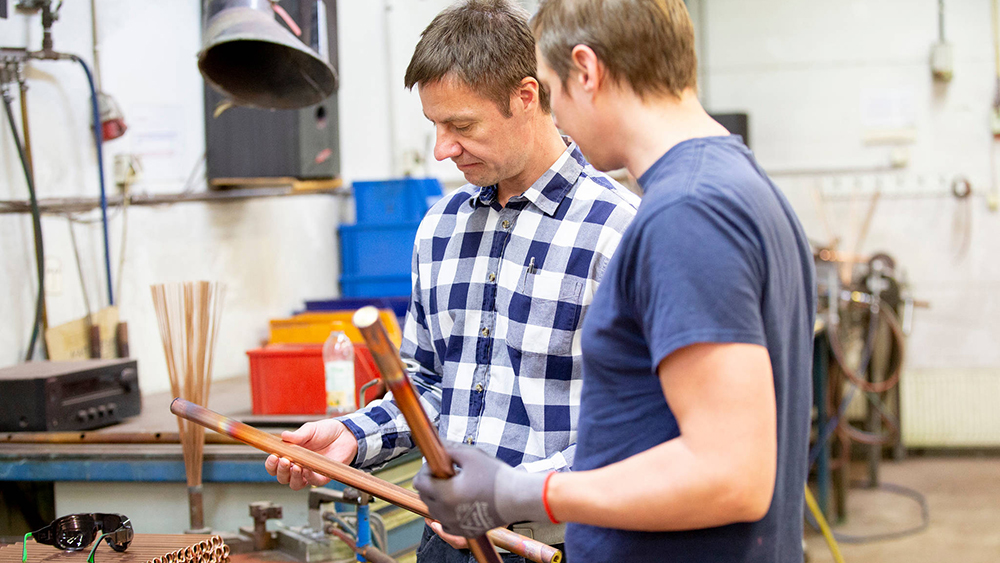Nordic conference to share good practices for improving employment of people with disabilities

Facilitating the employment of persons with disabilities will be the focus of a virtual Nordic conference on Thursday 9 December. The conference will highlight new kinds of intermediate labour markets and successful experiences of employing people with disabilities through social enterprises. The agenda also includes good practices for supporting work ability for people with disabilities at workplaces.
Minister of Social Affairs and Health Hanna Sarkkinen and State Secretary Ville Kopra from the Ministry of Economic Affairs and Employment will speak at the conference, in addition to a large number of representatives from companies and organisations.
The conference is one of the working life events organised during Finland’s Presidency of the Nordic Council of Ministers. Its purpose is to promote the employment of persons with disabilities through practical experiences and good practices. The topic brings together all Nordic countries, because the obstacles to the employment of persons with disabilities are similar regardless of the country.
Social economy is an opportunity to people with disabilities
The conference participants will also be briefed on the European Commission’s Action Plan for Social Economy, which will be published on the same day. Social economy has significant potential to improve the employment of people with disabilities too. This calls for cooperation and partnerships with public administration, organisations and social enterprises.
Finland has already taken this issue forward. The promotion of social entrepreneurship is included in the Government Programme, and last spring the Government adopted a strategy for social enterprises. One of the strategy’s objectives is to employ people with partial work capacity and those who are otherwise in a difficult labour market position.
A Centre of Expertise for Social Enterprises has been established to implement the strategy. Its task is to increase the number of and awareness on new social enterprises and develop their competences, especially in order to improve the effectiveness of their activities.
Work and supporting work ability increase wellbeing and equality
A high employment rate and good-quality working life reduce the costs of social exclusion, unemployment and disability to society. At the same time, people’s wellbeing will be supported and equality will be increased.
The Government’s objective is to raise the employment rate to 75% by the middle of the decade. The age structure of the population and, consequently, an increasingly smaller number of working-age people will aggravate the problem of prolonged unemployment and shortage of skilled labour. It is therefore important that those currently outside the labour market, including those in a vulnerable position, find work. Employing people with disabilities is a great opportunity for society that has not yet been utilised.
In addition to measures that support employment, we need to prevent incapacity for work and improve productivity and wellbeing at work at the same time. Mental health must be considered a resource in working life. Employing people with disabilities and extending their working careers also require changes in attitudes. Work opportunities must be offered with an open mind.
The ongoing major structural reforms, such as the health and social services reform and the social security reform, will also boost employment. The reform of health, social and rescue services will develop a service system for supporting the work ability of working-age people. The social security reform will provide better opportunities to reconcile work and benefits in different life situations.
Improving the employment rate of people with disabilities requires that working life skills are developed by adjusting work and introducing flexible work arrangements. Research data related to employment and work ability as well as an assessment of the effectiveness of the solutions are also needed for decision-making.
The theme of the conference is closely related to the work ability programme, which is part of the Government’s employment measures as a whole. The work ability programme promotes the employment of people with partial work capacity and their wellbeing at work. The Ministry of Economic Affairs and Employment is responsible for implementing the work ability programme in cooperation with the Ministry of Social Affairs and Health.
The webcast is available online on 9 December beginning at 10.00:
Hashtags on social media are #Norden2021 #TheNordicsTogether
Inquiries:
Pauliina Porkka, Ministerial Adviser, Ministry of Economic Affairs and Employment, tel. +358 295 048 278 [email protected] (questions about the conference programme)
Ritva Partinen, Senior Specialist, Ministry of Social Affairs and Health, tel. +358 295 163 330, [email protected]
Jussi Ala-Lahti, Trainee, Ministry of Economic Affairs and Employment, tel. +358 295 047 173 [email protected] (registration, other practical arrangements)
